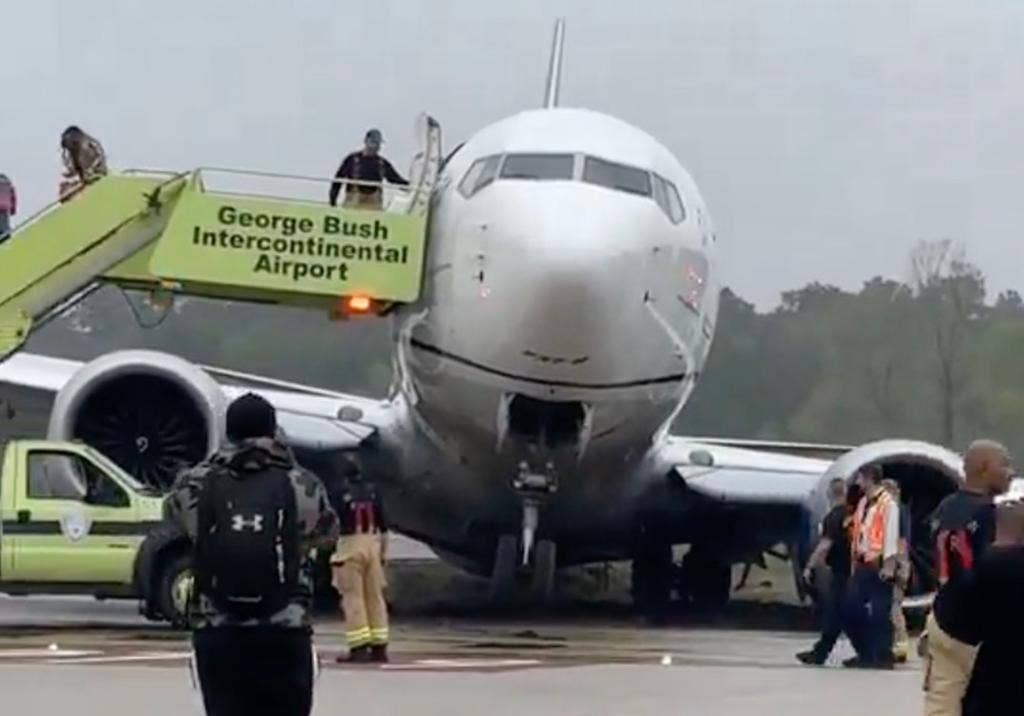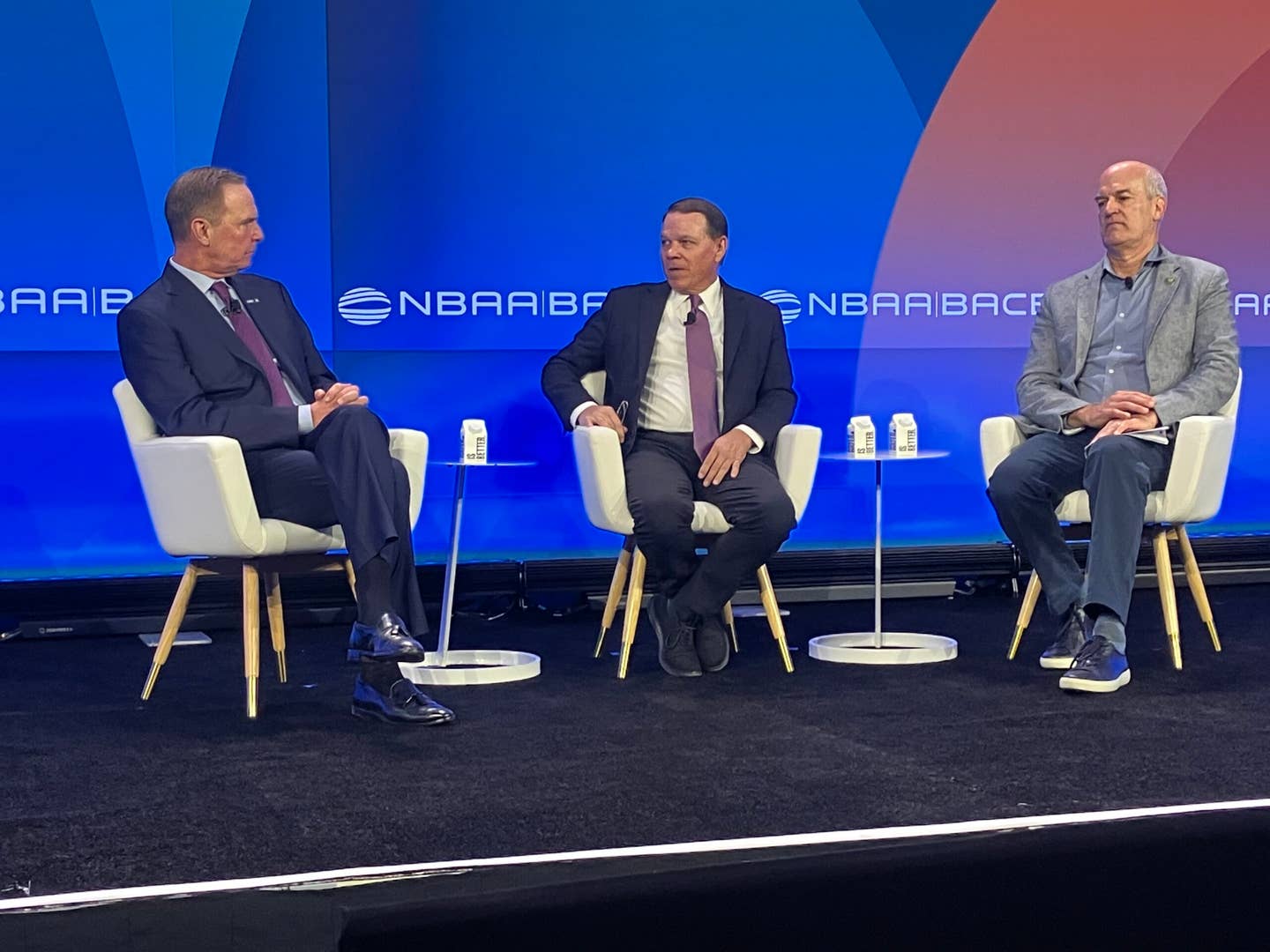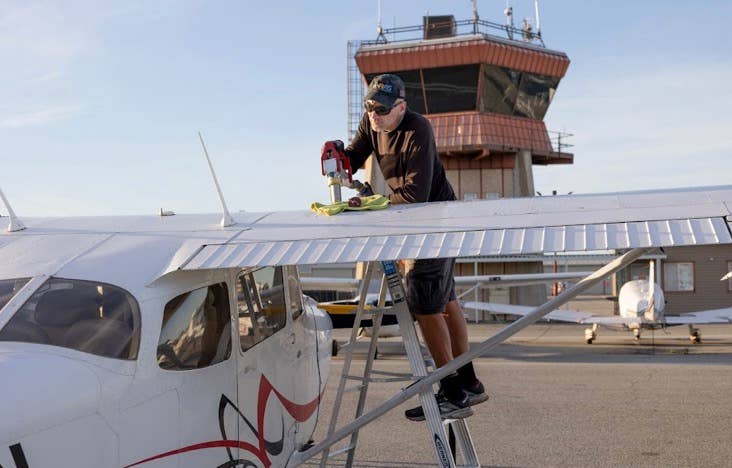Self-Censorship Gets In The Way Of Reporting The News
News is news and we serve no one by ignoring it.

X / @VickiO_theDO
So, when it first popped up on one of the aviation networks that I frequent I decided not to bite on it. The crew of a United 737 MAX 8 misjudged a taxiway turn and collapsed the left main in the mud. Minor incidents like this are a tough call when it comes to news value. Nobody was hurt, the airplane will likely fly again (won't be cheap, though) and relatively inconsequential mishaps like this happen frequently to the point of being mundane. But that's not why I didn't run it.
Newsrooms all over the world have Google Alerts set to "737 MAX" and "Boeing" and given the events of last few years, that's to be expected. There's lots of news to cover and none of us wants to miss anything. But when I saw all the breathless coverage that, by association at least, seemed to link a MAX in the weeds with the long list of Boeing's recent transgressions I hit the pause button.
This kind of piling on is common in mainstream media but, dammit, this is an aviation news site and pandering to that kind of disingenous hysteria is beneath this audience. Right? Whatever happened on that taxiway in Houston had nothing to do with a door plug blowing out so jumping all over a nothing story just because it was a MAX and MAXes are big news right now seemed exploitive. Still, it did collapse the gear....
Anyhow, I made the call and nagging self doubt notwithstanding it I stuck to my guns. Then about the same time, the NTSB came out with a report about another United MAX whose crew couldn't move the rudder pedals after landing in Chicago. The captain used the tiller to keep it between the lines on the rollout and other than the adrenaline shot to the heart the pilots suffered, no harm was done. Turns out a stiff servo on the pedal linkage was to blame.
Again, it was not remotely related to missing bolts and shoddy rivets so my noble stance against journalistic excess held and I walked away from the computer. Must have been scary when those rudder pedals froze though....
Then there was the United 737 that ingested some bubble wrap through an engine with predictable results--flames from the engine but a routine landing by the impeccably trained crew. No news there. Such a good video though....
A day or two later a 777, another United plane, dropped a tire just after taking off from San Francisco. I told myself it's not even the same kind of plane and this kind of thing happens from time to time. A reader wondered why we hadn't covered it and that's when I began to shake myself out of my self indulgent stupor. I was dead wrong. That should have been written up immediately with the video of that great big tire dropping like a bomb and taking out a fence and two cars in the staff parking lot below.
Of course our readers wanted to read about that but this ethical conundrum that I'd been wrestling with got in the way of basic news judgment. In my honorable but misguided quest to maintain balance and objectivity I spiked a story that at any other time would have been a no-brainer.
Because they were all Boeings and all belonged to United, the more enterprising among mainstream outlets actually went looking for trouble and found a couple of diversions caused by garden variety hydraulics issues. That brought to five the number of United Boeings that came to some kind of grief in the past week. That's a bad week by anyone's measure and worthy of coverage in itself.
Clearly, that was my colleague Amelia Walsh's opinion, too. While I was trying to figure out how to artfully craft a story that somehow buried the fact that I was days late with reporting these events, Amelia, our newest addition to the AVweb newsteam, saved me the trouble. She wrote a straightforward news story that succinctly described the events with no navel gazing or hand wringing.
There's a lot of mistrust of media and after 40 years of doing this I've had a front row seat to the way the Internet has transformed the way we gather, present and ultimately think about the news. All of these Boeing stories just seemed like a case of the mainstream media looking for deep meaning that didn't exist and linking them falsely to a whole set of other serious problems facing the company. So rather than join the mob that I perceived, I struck what I thought was a blow for responsible journalism.
But actually they were just interesting, if not terribly significant stories linked by remarkable coincidence that I should have served up earlier for our readers. They're smart and I don't think we would have confused anyone or sparked any conspiracy theories.
Sometimes it takes a fresh set of eyes, unclouded by the cynicism that can sometimes masquerade as the wisdom of experience, to see things for what they really are. So thanks, Amelia. Good story.






